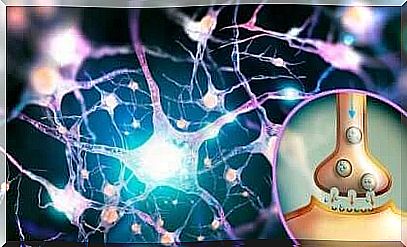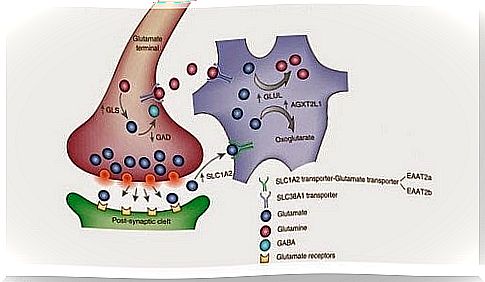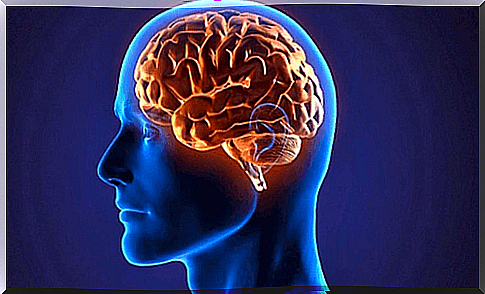Glutamate: Multifunctional Neurotransmitter

Glutamate is one of the most important neurotransmitters in our nervous system. It acts as a genuine fuel for 80% of our synapses. It intervenes in the formation of memories, in the management of attention and in the regulation of emotions. Furthermore, it intervenes in determining processes such as neuroplasticity, learning and movement.
Probably many of our readers know more about glutamate as a protagonist of the food industry (monosodium glutamate), than that essential component that promotes communication between our nerve cells. A distinction must therefore be made between dietary glutamate, i.e. the one in the form of salt used as a food preservative or to enhance the flavor, from the amino acid that is synthesized in the central nervous system starting from glutamine, both in presynaptic neurons and in glial cells. .
Under normal conditions, (endogenous) glutamate is one of the most abundant amino acids in our body. We produce it thanks to the proteins we consume and it stands as the main excitatory neurotransmitter. As neuroscientists explain, it is an element whose main purpose is to give energy to the brain.
On the other hand, and with reference to exogenous glutamate, it must be said that the idea that it can be dangerous for the health of our brain is very widespread. As a study conducted by the University of Pittsburg Medical School Nutrition Center and published in The Journal of Nutrition indicates , there is no clear evidence of neurological damage following consumption of dietary glutamate. But let’s see more details below.

Glutamate: an amino acid with different functions
This amino acid is the mediator of a healthy brain. It is not us who say it, but an interesting study conducted by the Institute of Basic Medical Sciences, of the University of Oslo. In recent years, new and fascinating discoveries have been made about this amino acid, which is involved in multiple metabolic functions. So let’s see are its main functions.
Main mediator of excitation signals
The central nervous system (CNS) is made up of neurons and glial cells (the most abundant). Thanks to the synaptic connections that are established between them, we can perform basic functions, such as cognitive, sensory, motor processes, etc. Well, in this complex process, it is glutamate that acts as a chemical messenger (neurotransmitter) between cells and neurons, following an electrical stimulus.
Consequently, and precisely due to the fact that glutamate is the main mediator of arousal signals, it is necessary that its concentrations are always adequate in order to perform the aforementioned function. A deficit would make such communication difficult (we would have no energy, so to speak). On the other hand, an excess would have a very damaging effect on our brain. It would favor the onset of ischemias, cerebrovascular accidents, hypoxia, epileptic attacks …
Glutamate promotes our brain development
Glutamate is as important for the brain development of the fetus as it is for neuroplasticity during development in childhood and youth, but also in adulthood. Thanks to this amino acid, neuronal differentiation, migration and the creation of new connections occur and, in essence, the good state of health of the brain.
It is also known that in very serious conditions, such as in the case of Huntington’s disease, Parkinson’s and Alzheimer’s disease, glutamate contributes to cell death. Alteration of its concentrations and functions can also cause a number of chronic neurodegenerative diseases.

Glutamate and glucose metabolism
Research conducted by the Faculty of Medicine of the University of Kobe (in Japan), and published in the journal Cell Reports , has allowed an important discovery. It would appear that glutamate is directly associated with the pancreas, which regulates the activity of beta-pancreatic cells in order to promote insulin production.
The importance of this amino acid, which gives us energy and, above all, optimizes brain functions, is revealed once again. It should be remembered that the brain cannot draw energy from lipids, therefore it needs glucose to perform its main functions. This need is met by this important neurotransmitter, glutamate.
Glutamate neurotoxicity
As we have explained, we have no evidence available to support the idea that the consumption of monosodium glutamate is responsible for neuronal alterations. However, some control over its consumption should not be overlooked. On the other hand, a balanced diet will reduce the chances of harm caused by its consumption.
The neurotoxicity associated with glutamate is not always due to exogenous factors. The main cause would lie in various pathological conditions, in alterations of ionotropic receptors, in sometimes genetic or still unknown problems, which activate the hyperexcitability associated with glutamate, neurotoxicity and consequent neuronal death.

Conclusions
We know that an excess of this amino acid can cause the already reported ischemias, problems with the brain development of the fetus, memory problems, epilepsy, muscle pain, etc. However, it must be said that there are different methods of intervention and that we have drugs that mediate in the regulation of glutamate concentrations.
To this day, science is still studying this excitatory neurotransmitter that promotes almost any function of our brain.








